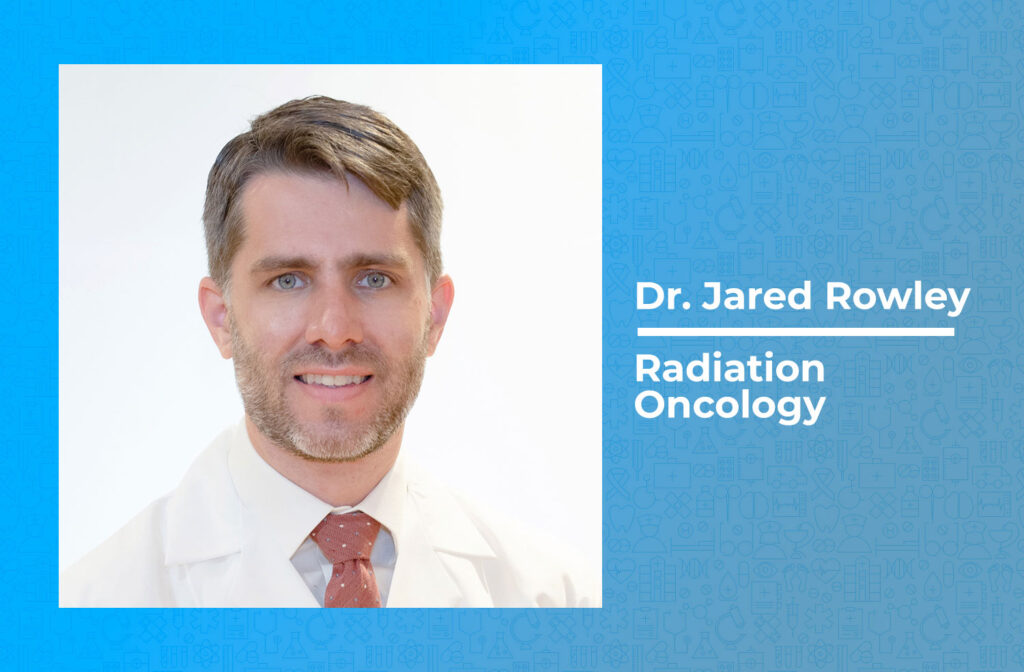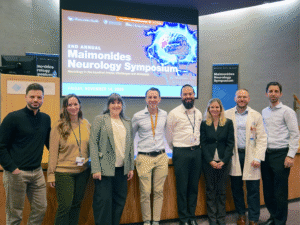New innovations and research in cancer care are a priority among the specialists in the Maimonides Cancer Center. As such, we’re always looking to bring the best and brightest in oncology to our staff to continue providing the best possible care to our patients and their families.
Jared Rowley, MD, is one of Maimonides’ newest doctors who brings a wealth of knowledge, experience, and research to the Maimonides Cancer Center. In addition to over a dozen published peer-reviewed articles, Dr. Rowley has also been recognized for clinical excellence and as a JetBlue healthcare hero during the COVID-19 pandemic.
Pursuing Radiation Oncology After a Long Career in Neuroimaging Research
“After five fascinating years of neuroimaging research at McGill University, I felt the need to pursue a career in which treatment could more readily improve quality of life,” he explained. “This epiphany led me to medical school.”
As his schooling came to a close, he wasn’t sure what his specialty would be until a chance encounter. “Radiation oncology is the perfect intersection of research, imaging, and patient care, all while using the highest quality evidence to dictate clinical decisions.”
Now, he’s an established radiation oncologist specializing in cancers of the thorax and genitourinary tract. There’s no doubt his patients and the rest of the specialists in the Maimonides Cancer Center will benefit from his deep knowledge and experience.
Ready to Serve His Community Through Maimonides
For the past nine years, Dr. Rowley has been a Brooklyn resident and working at Maimonides is a natural transition in his career. “There are so many great doctors working in the Maimonides Cancer Center. I’m excited to work and collaborate with them.”
As he joins the extraordinary team at Maimonides Cancer Center, Dr. Rowley is excited to contribute to the expansion of the stereotactic body radiation therapy (SBRT) program. This innovative treatment uses focused radiation to treat cancer in many different parts of the body.
“I’m also continuing to work on research related to resident physician education, research productivity, physician job market, gender, and bibliometrics in radiation oncology,” he explained. There’s no doubt his findings will help inform resident education and impact radiation oncology treatments in the future.




